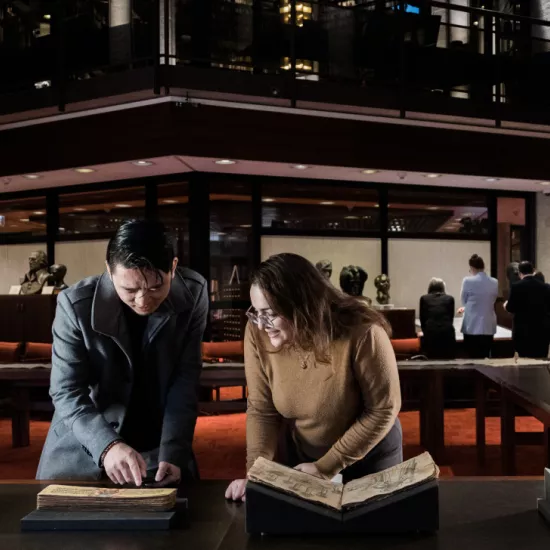Researchers mark new chapter in fight against muscular dystrophy with latest federal grant

University of Toronto Mississauga and the U of T Donnelly Centre have been awarded grant funding for the next five years by the Canadian Institutes of Health Research, as researchers continue their work to unlock the mysteries that come at the intersection of muscles and the nervous system.
Led by principal investigators Bryan Stewart and Penney Gilbert, the more than $900,000 CIHR funding for their project “Evaluating the nerve-muscle connection as a Duchenne muscular dystrophy (DMD) therapeutic target,” marks a new chapter in the fight against muscular dystrophy.
“Developing new systems to understand nerve-muscle biology in culture is crucial for advancing our understanding and treatment of muscle diseases,” says Stewart, a professor of physiology in UTM’s department of biology.
The project focuses on developing methods to simulate the natural state of muscle development and function within a culture system. This innovative approach is expected to further their team’s ability to study human nerve-muscle junctions and unravel the complexities of muscle diseases, particularly DMD, a severe form of muscular dystrophy that leads to progressive muscle-fibre weakness and degeneration.

Ultimately, the goal is to develop and refine genetic therapies, where potential drug treatments can be tested to support neuromuscular function.
Gilbert and Stewart led an earlier project, a pioneering 3D muscle cell culture system to analyze human muscle cells grown from healthy and DMD-patient stem cells, which received a CIHR grant in 2020.
With this latest significant CIHR investment, the U of T researchers are poised to make meaningful advances in the understanding and treatment of muscular dystrophy, potentially improving the lives of DMD patients worldwide and offering hope to those affected by this debilitating condition.
Additionally, the researchers note that the continuity and stability provided by this grant are essential for attracting top-tier scientists and training students at U of T.
“We are thrilled to receive this support from CIHR to continue our work on neuromuscular physiology,” says Stewart. He's enthusiastic to start the next phase of this ongoing collaboration with Gilbert, who is cross-appointed to the Donnelly Centre and department of cell & systems biology and is an assistant professor at the Institute of Biomedical Engineering.
“We have made some very important progress in the last few years, especially using stem cell technology to recreate complex tissues in culture. With this new round of funding, we’ll be able to continue and build on our research,” he continues.
“Moreover, the vast majority of grant funds will go directly to the salary and student stipends of the excellent personnel working in our labs, providing outstanding training opportunities for the next generation of researchers and reinforcing our contributions to cutting-edge research in DMD.”



